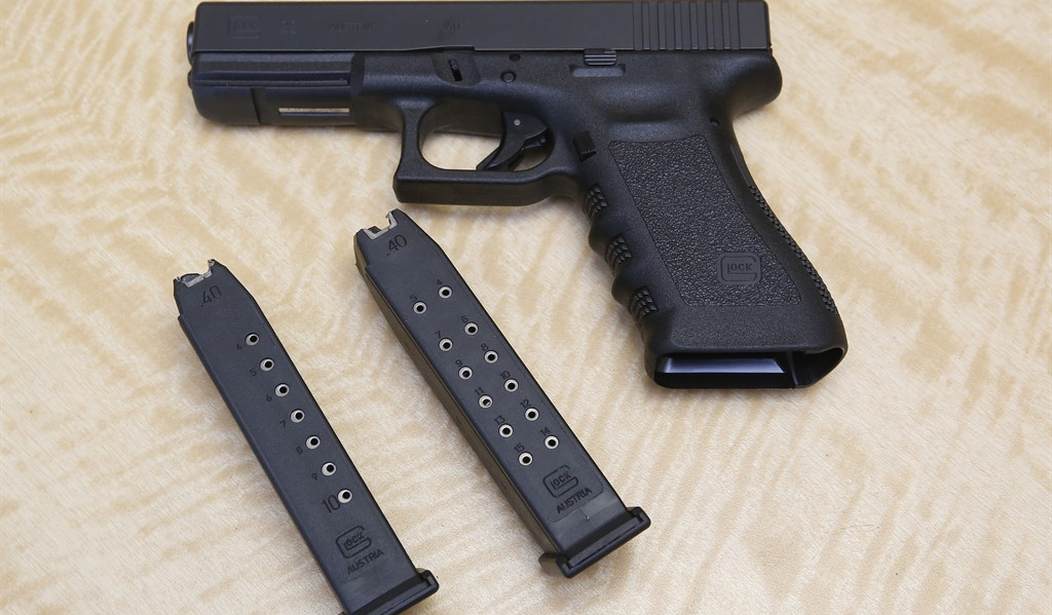The closing arguments have wrapped up and we’re now waiting on a decision by U.S. District Judge Karen Immergut in a federal lawsuit challenging Oregon’s Measure 114; a gun control referendum narrowly approved by less than 51% of the vote last November that banned so-called “large capacity” magazines and established a permit-to-purchase procedure for handgun sales in the state.
Plaintiffs’ attorneys have argued that the magazines are in common use for lawful purposes and are therefore protected by the Second Amendment, while attorneys for the state contended that magazines aren’t “arms” at all, but rather accoutrements that can be regulated or prohibited without fear of violating anyone’s constitutional rights. But if Immergut doesn’t buy that argument, the attorneys defending the gun law have a backup argument; the magazine ban is a modern response to the supposedly “unprecedented societal concern” over mass shootings.
[Senior Assistant Attorney General Harry B.] Wilson and Attorney Zachary J. Pekelis, who represents the nonprofit Oregon Alliance for Gun Safety, each defended the measure, highlighting the “unimaginable carnage” from mass shootings at schools, businesses and grocery stores in the last two years. Oregon became the 14th state to adopt a law restricting large-capacity magazines, seeking to reduce mass shootings.
“It doesn’t take a Ph.D. to know that these mass shootings happen nowhere else in the world like they do in the United States today,” Pekelis argued. “Mass gun murder has become so common as to be almost routine.” Yet, he said, the trial evidence showed that mass shootings are a modern phenomenon – unheard of before 1949 but have exploded in the last two decades, largely due to large-capacity magazines.
…
[Matthew] Rowen, representing the measure’s opponents, countered that while mass shootings are terrible, murder and violence aren’t a new thing but “a horrible fact of American life.”
While the incidence of mass shootings have risen, Rowen argued, “that’s not the sort of unprecedented societal concerns the court had in mind,” in the Bruen opinion.
He argued that magazines that hold more than 10 rounds of ammunition are commonly used for self-defense, with an estimated 160 million people owning them over the last 30 years for self-defense, sports shooting and hunting. The measure’s defenders contested that count by the National Shooting Sports Foundation, but stipulated for trial that they’re owned by millions of Americans.
Rowen acknowledged there’s a history and tradition of banning dangerous and unusual arms, but “if something is owned by millions and millions and millions of Americans, it’s obviously not unusual.”
Nor is it inherently dangerous, but in her earlier decision declining to grant a temporary restraining order halting enforcement of the magazine ban Immergut bought into the claim that magazines fall outside of the Second Amendment’s protection, and it’s likely she’ll stick with that stance once she releases her ruling. Immergut also did the state a huge favor by deciding she would base her decision on the pistol purchase permit scheme based solely on the text of Measure 114 and not on any issues or conflict with the constitution that might arise when the state gets around to implementing the new mandate.
The challengers also argue that the permit provision now, as written, won’t and can’t work because the FBI doesn’t currently authorize the state police to submit fingerprints to run a national background check through an FBI data system.
“The FBI cannot perform the background checks that Measure 114 says they shall conduct,” Rowen argued.
Proponents of the measure said it’s possible the FBI will grant that access with a legislative fix.
Rowen argued the state would need to make that legislative change or adopt a different measure.
“They need to because the one that (voters) adopted is unconstitutional,” he told the judge.
It’s unclear if the judge will even consider the FBI background problem as she said her ruling is restricted to the text of the measure, not how it will be applied in Oregon.
In December, she ruled that the permit-to-purchase provision is in line with the “shall-issue” permit scheme supported by the U.S. Supreme Court’s ruling in June. If an applicant meets the criteria for the permit, the permit agent — which is likely to be a county sheriff’s office or local police agency — “shall issue” the permit, Immergut wrote then.
Based on Immergut’s earlier decision denying the TRO, I have a feeling she’s going to side with the state of Oregon here. Thankfully, because Measure 114 is also being challenged in state court as a violation of the Oregon constitution, any adverse ruling by Immergut won’t have an immediate impact on the state’s gun laws or Measure 114’s magazine ban, which will remain in place at least through September, when a judge in Harney County is set to preside over a second trial to determine the legality of the anti-gun referendum.
Regardless of how Immergut rules here, the losing side is also almost certain to appeal to the Ninth Circuit and ultimately the Supreme Court. It could be a couple of years before SCOTUS gets ahold of Measure 114, and by then hopefully we’ll have some additional rulings from the Court fleshing out the Bruen decision and strengthening the legal protections for our right to keep and bear arms. Until then, unfortunately, blue states like Oregon are going to continue treading all over our Second Amendment rights; emboldening the state’s criminals and depriving responsible citizens of the means to protect themselves from the dangers outside their door.









Join the conversation as a VIP Member